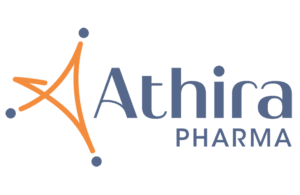 The neurodegeneration-focused biopharma Athira Pharma (Nasdaq:ATHA) will continue its Phase 2/3 LIFT-AD study of fosgonimeton (ATH-1017) in patients with mild-to-moderate Alzheimer’s disease.
The neurodegeneration-focused biopharma Athira Pharma (Nasdaq:ATHA) will continue its Phase 2/3 LIFT-AD study of fosgonimeton (ATH-1017) in patients with mild-to-moderate Alzheimer’s disease.
The company recently announced an unblinded interim efficacy and futility analysis of LIFT-AD. In addition, an independent data monitoring committee recommended continuing the study of fosgonimeton (ATH-1017) in patients with mild-to-moderate Alzheimer’s disease (AD).
In many ways, the past year has not been kind to Seattle-based Athira. Last October, the company announced that its former CEO Lee Kawas and cofounder would resign in the wake of research misconduct allegations. (Kawas has since established an investment firm known as Propel Bio Partners.) In June 2022, Athira announced disappointing results from the Phase 2 ACT-AD trial involving (ATH-101) in Alzheimer’s disease.
Athira’s share price fell from $34.25 on December 31, 2020 to under $3 per share in June 2022. Today, however, ATHA shares jumped 9% to $3.50 on the strength of the independent data monitoring committee’s recommendations.
The company aims to finish enrollment in the study in the middle of 2023 and announce topline results in early 2024.
The primary endpoint of the LIFT-AD trial relates to clinical change using the Global Statistical Test (GST).
The LIFT-AD study included a futility analysis that used stringent criteria to determine whether the drug candidate was likely to demonstrate a clinically meaningful effect size for effect size for cognition and function. “We wanted to make sure that if [fosgonimeton] was not working, that we didn’t want to continue with the program,” said Mark Litton, president and CEO of Athira, in a call with analysts.
The data monitoring committee’s feedback has encouraged the company to continue the Phase 2/3 study.
The method the committee used is not necessarily restricted to a polar outcome of whether the study passes or fails the futility analysis, according to Dr. Hans Moebius, Athira’s chief medical officer. “The method can also ask the question, ‘Should we stop early for efficacy?’” Moebius said. “This is a scenario that we consciously did not elect to ask because if you do that, you have to pay a statistical penalty on alpha, and this is something that we were able to successfully avoid.”
In the Phase 2 ACT-AD study, fosgonimeton without background therapy was associated with improved cognition based on the ADAS-Cog11 test and improved functionality based on the ADCS-ADL23.